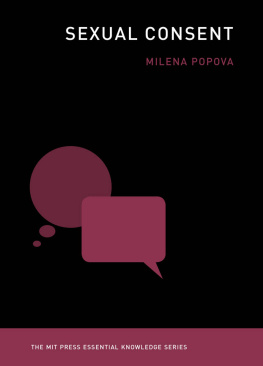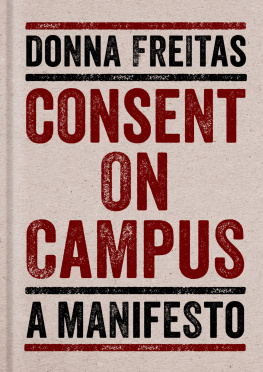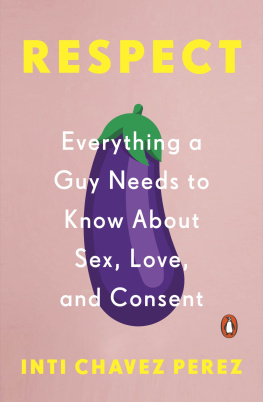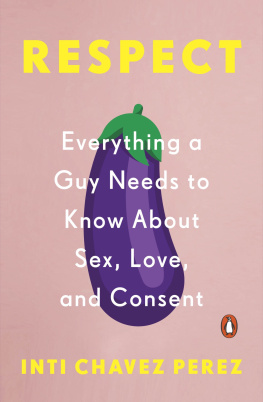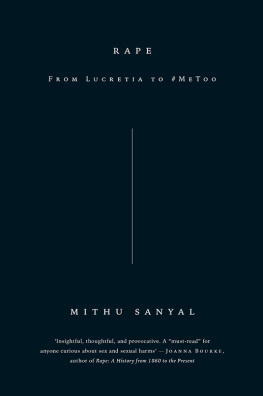Praise for
The Right to Sex
Each essay in The Right to Sex is a masterpiece on its own; taken together, they show how learning to think carefully and precisely about the politics of desire is the preeminent ethical project of our time. [Srinivasans] voice is at once patient and rigorous, demanding and sympathetic. Our age of hot takes and hard opinions is undeserving of her intellectual gifts Merve Emre
A spectacular piece of writing a book that asks you to believe that the world could be radically different, and a book which engages in the strenuous work of imagining how that world might come into being Amia Srinivasan demands an unswerving allegiance to nuance and to the interrogation of power. Standing as we all are inside a raging fire, to read it feels not like a water bucket, but like rain Katherine Rundell
In stripping the new politics of sex and power down to its fundamental and sometimes clashing principles, The Right to Sex is a bracing revivification of a crucial lineage in feminist writing: Srinivasan is daring, compassionate, and in relentless search of a new frame Jia Tolentino
Amia Srinivasans magnificent first book announces itself as a classic. Already one of our most superlative philosophers and stylish essayists, Srinivasan shows that concern for the plight of the most oppressed is never disconnected from general explorations of and movements for free lives for everyone, and the renovated social order our common future requires Samuel Moyn
Exhilarating An incredibly articulate, moving and groundbreaking analysis of the politics of sex and desire in the twenty-first century Amrou Al-Kadhi
Amia Srinivasan reveals both the material opportunities and dead-ends of a century-long conscious trajectory towards female empowerment. The Right to Sex reminds us of the foundational complexities to Womens Liberation ideas and why we are still grappling with them Sarah Schulman
For my mother, Chitra
Contents
the thing I came for:
the wreck and not the story of the wreck
the thing itself and not the myth
Adrienne Rich, Diving into the Wreck
Feminism is not a philosophy, or a theory, or even a point of view. It is a political movement to transform the world beyond recognition. It asks: what would it be to end the political, social, sexual, economic, psychological and physical subordination of women? It answers: we do not know; let us try and see.
Feminism begins with a womans recognition that she is a member of a sex class: that is, a member of a class of people assigned to an inferior social status on the basis of something called sex a thing that is said to be natural, pre-political, an objective material ground on which the world of human culture is built.
We inspect this supposedly natural thing, sex, only to find that it is already laden with meaning. At birth, bodies are sorted as male or female, though many bodies must be mutilated to fit one category or the other, and many bodies will later protest against the decision that was made. This originary division determines what social purpose a body will be assigned. Some of these bodies are for creating new bodies, for washing and clothing and feeding other bodies (out of love, never duty), for making other bodies feel good and whole and in control, for making other bodies feel free. Sex is, then, a cultural thing posing as a natural one. Sex, which feminists have taught us to distinguish from gender, is itself already gender in disguise.
There is another sense of the word sex: sex as a thing we do with our sexed bodies. Some bodies are for other bodies to have sex with. Some bodies are for the pleasure, the possession, the consumption, the worshipping, the servicing, the validating of other bodies. Sex in this second sense is also said to be a natural thing, a thing that exists outside politics. Feminism shows that this too is a fiction, and a fiction that serves certain interests. Sex, which we think of as the most private of acts, is in reality a public thing. The roles we play, the emotions we feel, who gives, who takes, who demands, who serves, who wants, who is wanted, who benefits, who suffers: the rules for all this were set long before we entered the world.
A famous philosopher once said to me that he objected to feminist critiques of sex because it was only during sex that he felt truly outside politics, that he felt truly free. I asked him what his wife would say to that. (I couldnt ask her myself; she hadnt been invited to the dinner.) This is not to say that sex cannot be free. Feminists have long dreamed of sexual freedom. What they refuse to accept is its simulacrum: sex that is said to be free, not because it is equal, but because it is ubiquitous. In this world, sexual freedom is not a given but something to be achieved, and it is always incomplete. Simone de Beauvoir, dreaming of a freer sex to come, wrote in The Second Sex :
assuredly, womens autonomy, even if it spares men a good number of problems, will also deny them many conveniences; assuredly, there are certain ways of living the sexual adventure that will be lost in the world of tomorrow: but this does not mean that love, happiness, poetry, and dreams will be banished from it. Let us beware lest our lack of imagination impoverish the future... new carnal and affective relations of which we cannot conceive will be born between the sexes... It is absurd to contend that... vice, ecstasy, and passion would become impossible if man and woman were concretely peers; the contradictions opposing flesh to spirit, instant to time, the vertigo of immanence to the appeal of transcendence, the absolute of pleasure to the nothingness of oblivion will never disappear; tension, suffering, joy, and the failure and triumph of existence will always be materialized in sexuality... on the contrary, it is when the slavery of half of humanity is abolished and with it the whole hypocritical system it implies that the... human couple will discover its true form.
What would it take for sex really to be free? We do not yet know; let us try and see.
These essays are about the politics and ethics of sex in this world, animated by a hope of a different world. They reach back to an older feminist tradition that was unafraid to think of sex as a political phenomenon, as something squarely within the bounds of social critique. The women in this tradition from Simone de Beauvoir and Alexandra Kollontai to bell hooks, Audre Lorde, Catharine MacKinnon and Adrienne Rich dare us to think about the ethics of sex beyond the narrow parameters of consent. They compel us to ask what forces lie behind a womans yes ; what it reveals about sex that it is something to which consent must be given; how it is that we have come to put so much psychic, cultural and legal weight on a notion of consent that cannot support it. And they ask us to join them in dreaming of a freer sex.
At the same time, these essays seek to remake the political critique of sex for the twenty-first century: to take seriously the complex relationship of sex to race, class, disability, nationality and caste; to think about what sex has become in the age of the internet; to ask what it means to invoke the power of the capitalist and carceral state to address the problems of sex.
These essays respond largely to situations in the US and the UK; I also pay some attention to India. This is partly a reflection of my own background. But it is also a deliberate choice. These essays are critical of much mainstream anglophone feminist thought and practice, which for decades has been the most visible, and materially powerful, form of feminism around the world. (Of course the feminists working outside of the anglophone mainstream have never been invisible, or marginal, to themselves or their communities.) It is good to be able to write that this dominance has, of late, been receding, not least because the most exhilarating recent expressions of feminist energies have come from outside anglophone contexts. To take just a few examples at the time of writing: in Poland, where the right-wing coalition government is implementing further legal restrictions on abortion, feminists have led a general uprising across the country, with protests in more than 500 cities and towns; in Argentina, five years of mass marches by feminists under the slogan Ni una Menos (Not one woman less) have compelled the Congress to legalise abortion, while feminists in Brazil, Chile and Colombia, where abortion remains largely illegal, are organising to follow suit; in Sudan, women led the revolutionary protests that brought down the dictatorial regime of Omar al-Bashir, and it was a young Sudanese feminist in her early twenties, Alaa Salah, who demanded that the United Nations Security Council ensure that women, resistance groups and religious minorities be included on equal terms in Sudans transitional government.







